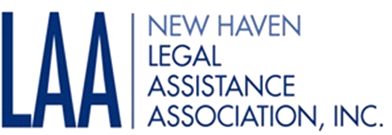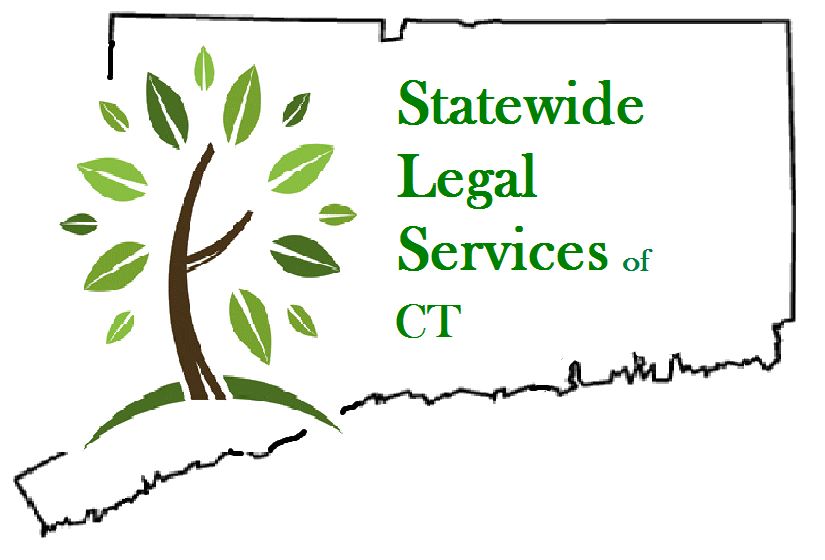FAQs
The following information is designed to assist attorneys in complying with IOLTA under Connecticut General Statutes Sec. 51-81c, the Connecticut Rules of Professional Conduct, Rule 1.15, and Connecticut Practice Book Sections 2-27 and 2-28. References to “client” include “client or third person”; references to “lawyer” include “lawyer or law firm or other organization with which the lawyer is professionally associated”; and references to “financial institution” include “banks, savings and loan associations, and open-end investment companies.”
What is IOLTA?
The Interest on Lawyers’ Trust Accounts (IOLTA) program was established by the Connecticut Legislature in 1984 to assist in the delivery of legal services to the poor. The Connecticut Bar Foundation was designated by the judges of the Superior Court as the 501(c)(3) organization to administer the IOLTA program. In 1989, IOLTA became a mandatory program and was amended to include scholarships for students demonstrating financial need attending law schools in Connecticut.
Lawyers in Connecticut are required to place funds of clients and third parties in IOLTA accounts when clients’ funds cannot earn income in excess of the costs incurred to secure such income. Specifically, Sec. 51-81c of the Connecticut General Statutes as amended by Public Act No. 09-152 states “Each lawyer and law firm having a clients’ funds account shall participate in the program. . . . Under the program, . . . a client’s funds that the client’s lawyers and law firms determine, in good faith, cannot earn income for the client in excess of the costs incurred to secure such income, shall be deposited by participating lawyers, law firms and entities in interest-bearing accounts specifically established pursuant to the program.” It further states that, “Nothing in this section shall prevent (A) a lawyer or law firm from depositing a client’s funds, regardless of the amount of such funds or the period for which such funds are expected to be held, in a separate interest-bearing account established on behalf of and for the benefit of the client. . . .”
How do lawyers determine appropriate accounts for client’s funds?
A client’s funds must be deposited in either an IOLTA account or an interest-bearing account for the benefit of the client.
In determining whether a client’s or third person’s funds should go in the lawyer’s IOLTA account or in an interest-bearing account for the benefit of the client, the lawyer may consider the following factors:
- The amount of the funds to be deposited;
- The expected duration of the deposit, including the likelihood of delay in the matter for which the funds are held;
- The rates of interest or yield at financial institutions where the funds are to be deposited;
- The cost of establishing and administering non-IOLTA accounts for the client’s or third person’s benefit, including service charges, the costs of the lawyer’s services, and the costs of preparing any tax reports required for income accruing to client or third person;
- The capability of the financial institutions or lawyers to calculate and pay income to a client or third person; and
- Any other circumstances that affect the ability of the client’s or third person’s funds to earn a net return for the client or third person.
No lawyer shall be subject to discipline for determining in good faith to deposit funds in an IOLTA account. Lawyers should, however, review IOLTA accounts at reasonable intervals to ascertain whether changed circumstances require further action.
How do attorneys register for IOLTA?
The process of opening a new IOLTA account is simple. Lawyers should complete the IOLTA/IOTA* Enrollment Form provided by the Connecticut Bar Foundation, submit the completed form to the financial institution maintaining the IOLTA account, and send a copy to the Connecticut Bar Foundation. Click here to access the IOLTA/IOTA Enrollment Form or contact:
The Connecticut Bar Foundation
100 Pearl Street, 11th Floor
Hartford, Connecticut 06103
Phone: (860) 722-2494
Fax: (860) 722-2497
Email: ctbf@ctbarfdn.org
The lawyer’s address and the Connecticut Bar Foundation’s tax ID number are required on the account; lawyers should not include the address of the Connecticut Bar Foundation. Lawyers should designate the account as “name of lawyer IOLTA account”.
*The Interest on Trust Accounts (IOTA) Program was created by the Connecticut General Assembly in 2005 by amending Sec. 51-81c of the Connecticut General Statutes to include funds from all entities “. . .having an account established to receive loan proceeds from a mortgage lender . . .”.
Where can lawyers open IOLTA accounts?
A lawyer can open clients’ trust accounts at an eligible financial institution that: 1) meets the requirements of Rule 1.15 as determined by the Connecticut Bar Foundation; and 2) files the necessary registration with, and receives approval from, the Statewide Grievance Committee.
Which financial institutions are eligible to offer IOLTA accounts?
Lawyers must keep IOLTA accounts at banks, savings and loan associations or open-end investment companies which qualify as “Eligible Institutions.” Banks and savings and loan associations must be authorized to do business in Connecticut and their deposits must be insured by an agency of the federal government. Open-end investment companies must be registered with the Securities and Exchange Commission, must be authorized by federal or state law to do business in Connecticut, and must meet certain capitalization requirements. All must pay IOLTA accounts no less than the highest interest rate or dividend generally available to their non-IOLTA customers on comparable accounts. Click here for a list of eligible financial institutions.
Who is allowed to sign on an IOLTA account?
Only a lawyer admitted to practice law in Connecticut or a person under the direct supervision of the lawyer should be designated as an authorized signatory or authorized to transfer funds from an IOLTA account.
When may lawyers place their own funds in an IOLTA account?
Although it is prohibited to mix lawyer funds with client funds, Rule 1.15 of the Connecticut Rules of Professional Conduct permits a lawyer’s own funds to be placed in a trust account for the sole purposes of paying financial institution service charges on the account or to obtain a waiver of fees and service charges on the account. Only sums necessary to cover these purposes may be deposited.
When can funds in IOLTA accounts be disbursed?
Lawyers must follow the regulatory requirements and internal procedures of the financial institution where they open an IOLTA account. Each financial institution has its own schedule regarding the availability of collected funds which often depends on the type of deposit. Lawyers should review these matters with their financial institution representative.
Who pays the IOLTA account fees and service charges?
Financial institutions may only deduct “allowable reasonable fees” from IOLTA interest which include per check charges, per deposit charges, a fee in lieu of a minimum balance, federal deposit insurance fees, sweep fees and a reasonable administrative or maintenance fee. Any fees and service charges other than allowable reasonable fees shall be the sole responsibility of, and may only be charged to, the lawyer maintaining the IOLTA account. Examples of such fees include cost of checks, wire transfer fees, and overdraft fees. Some banks charge these fees to the lawyer while other banks waive these fees.
What are the requirements regarding IOLTA recordkeeping?
Lawyers are required to register with the Statewide Grievance Committee annually and whenever they change their address, or the location or account number of their IOLTA account. Lawyers must provide the name and address of their office, their email address, the name and address of the financial institution(s) maintaining their IOLTA account(s), and their IOLTA account number(s). When notifying the Statewide Grievance Committee of any change of address, email address, or IOLTA account information, lawyers should also notify the Connecticut Bar Foundation.
Lawyers are required to maintain a receipt and disbursement journal which identifies all deposits in and withdrawals from the client fund account, and which also shows the running balance. A separate accounting page or journal should be kept for each client or person for whom funds are held showing all receipts and disbursements and the running account balance. Records should track IOLTA funds from the time of acquisition until the time of disposition. IOLTA records must be kept for seven years after a lawyer ceases to represent a client. See Connecticut Practice Book, Rules of Professional Conduct, Rule 1.15 and Connecticut Practice Book, Superior Court General Provisions, Sec. 2.27 for additional record keeping requirements.
For an example of a receipt and disbursement journal, see below:
| Client: A. Jones | Case # 12345 | IOLTA Account # 98427 | ||||
| Date | Ref/Ck # | Payee/ Payor | Description of Transaction | Check Amount | Deposits | Balance |
| 7/1/XX | Deposit | A. Jones | Retainer | $2,000.00 | $2,000.00 | |
| 7/8/XX | #1050 | ABC Title Co. | Title Search | $500.00 | $1,500.00 | |
| 8/2/XX | #1066 | XYZ Law Firm | Legal Fee | $1,000.00 | $500.00 |
Where should lawyers licensed in more than one state maintain their IOLTA accounts?
Lawyers should maintain IOLTA accounts in the state where the lawyer’s office is located. They may maintain IOLTA accounts elsewhere with the consent of the client or third person.
What action should lawyers take upon receipt of an overdraft notice on an IOLTA account?
Lawyers should contact the financial institution immediately to correct the overdraft. If funds to correct the deficiency are deposited within one business day of presentment of the overdraft, the financial institution will not be required to report the overdraft to the Statewide Grievance Committee. Lawyers can also contact the Statewide Grievance Committee to notify them that the overdraft has been rectified. Lawyers do not need to notify the Connecticut Bar Foundation.
What action should lawyers take when they place funds in an IOLTA account by mistake?
Lawyers should contact the Connecticut Bar Foundation to request reimbursement of interest transmitted to the IOLTA program. The Foundation’s Board of Directors may reimburse the interest upon a showing of the following:
- The error was made at the time of placement of funds into the IOLTA account;
- The lawyer obtains a written statement from the bank, if possible, identifying the amount of interest attributable to the deposit in question; if not possible, then the lawyer provides proof that the interest was paid to the IOLTA program using bank statements or other documentation;
- The request is made in a timely fashion (to be determined by the Board of Directors); and
- The request is in writing.
What action should lawyers take regarding abandoned funds in IOLTA accounts?
Abandoned fiduciary property in trust accounts are to be treated as unclaimed property. If a client’s/owner’s funds or property has been abandoned, they are to escheat to the state. Lawyers should obtain the necessary reporting forms, which include those for “unknown” owners, from the Office of the State Treasurer Unclaimed Property Division. The forms are available online at the link here.
Where do I find information on FDIC insurance coverage for my IOLTA account?
The following is a link to the FDIC website: http://www.fdic.gov/deposit/
Connecticut General Statute, Connecticut Rules of Professional Conduct and Connecticut Superior Court Rules regarding IOLTA
-
as amended by Public Act No. 09-152, effective January 1, 2011: Program for use of interest on lawyers’ clients’ funds accounts.












